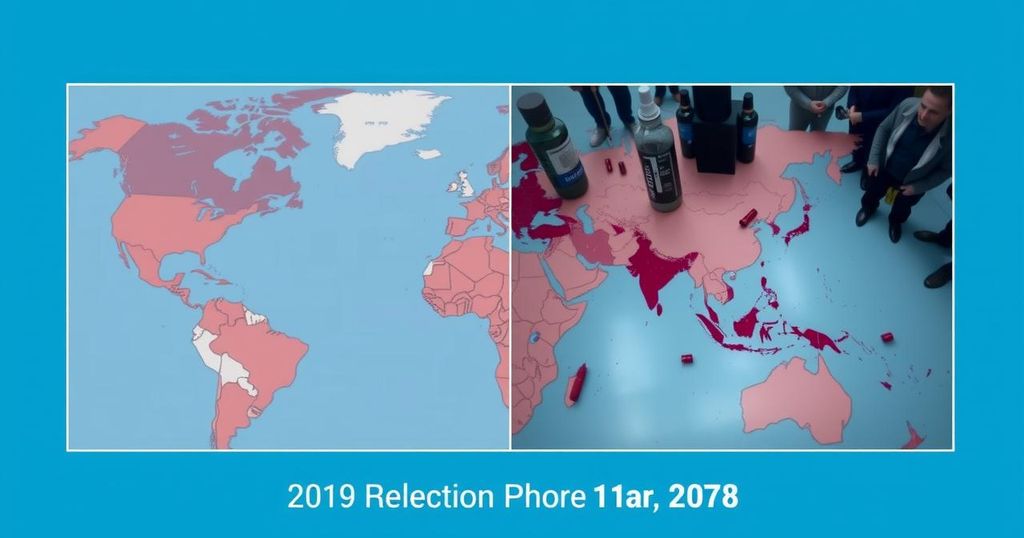Global Elections 2024: A Year of Promise and Discontent

In 2024, global elections across continents were marked by hope and unrest, reflecting diverse voter experiences amidst geopolitical tensions. Disputed results and economic crises influenced many elections, leading to significant political shifts in various countries, including a historic election in Mexico.
In 2024, global elections engaged nearly half of the world’s population, showcasing a diverse array of voting experiences across continents. Reuters photographers documented the prevailing emotions of hope and euphoria amidst the global unrest due to conflicts such as those in Ukraine and the Middle East, along with ongoing economic challenges post-COVID-19. Voters across various nations, from India to Senegal, displayed their electoral fervor despite facing adverse weather conditions, some even adorning themselves in national colors or candidate symbols.
However, many elections witnessed disputes and grievances as significant segments of the populace believed their electoral voices were disregarded. Observers deemed the elections in Mozambique as neither free nor fair, while in Venezuela, opposition figures reported a discrepancy in the vote count. Allegations of vote rigging plagued the parliamentary elections in Algeria and ignited tensions in Indonesia, where clashes erupted between protesters and police.
The rise of nationalistic sentiments became evident in elections held across France, Romania, and Georgia, prompting protests in Georgia after electoral irregularities were alleged. In Russia, President Vladimir Putin solidified his grip on power despite widespread criticism of his administration’s treatment of dissenters. Conversely, several incumbents faced voter dissatisfaction for their handling of economic woes, leading to significant shifts in power, as seen in Britain and Japan. In the United States, former President Donald Trump reclaimed his position against Democratic candidate Kamala Harris, while Mexican voters elected Claudia Sheinbaum, marking a historic moment as the first female leader of the country.
Further, in India, the monumental election, boasting over a million polling stations, resulted in Prime Minister Narendra Modi securing a third term, though with a diminished majority, highlighting the complexities of the world’s largest democratic exercise.
The year 2024 marked a significant period for democratic engagement worldwide, with numerous nations conducting elections that captured the attention and participation of nearly half the global population. Amidst this backdrop of rising nationalistic ideologies and geopolitical instability due to conflicts and economic challenges, various elections witnessed varying degrees of legitimacy and public response. The role of global economic pressures, particularly arising from the aftermath of the COVID-19 pandemic, also influenced the electoral landscape, leading to intense scrutiny of governments and incumbents around the globe.
The elections of 2024 not only reflected the aspirations of millions but also underscored the prevailing global tensions and discontent faced by electorates. From nationalistic rises to incumbent downfalls, voters expressed their sentiments through their ballots against a backdrop of economic challenges and social unrest. Ultimately, the electoral outcomes significantly impacted the political frameworks of many nations, shaping future governance and policy direction.
Original Source: www.usnews.com







